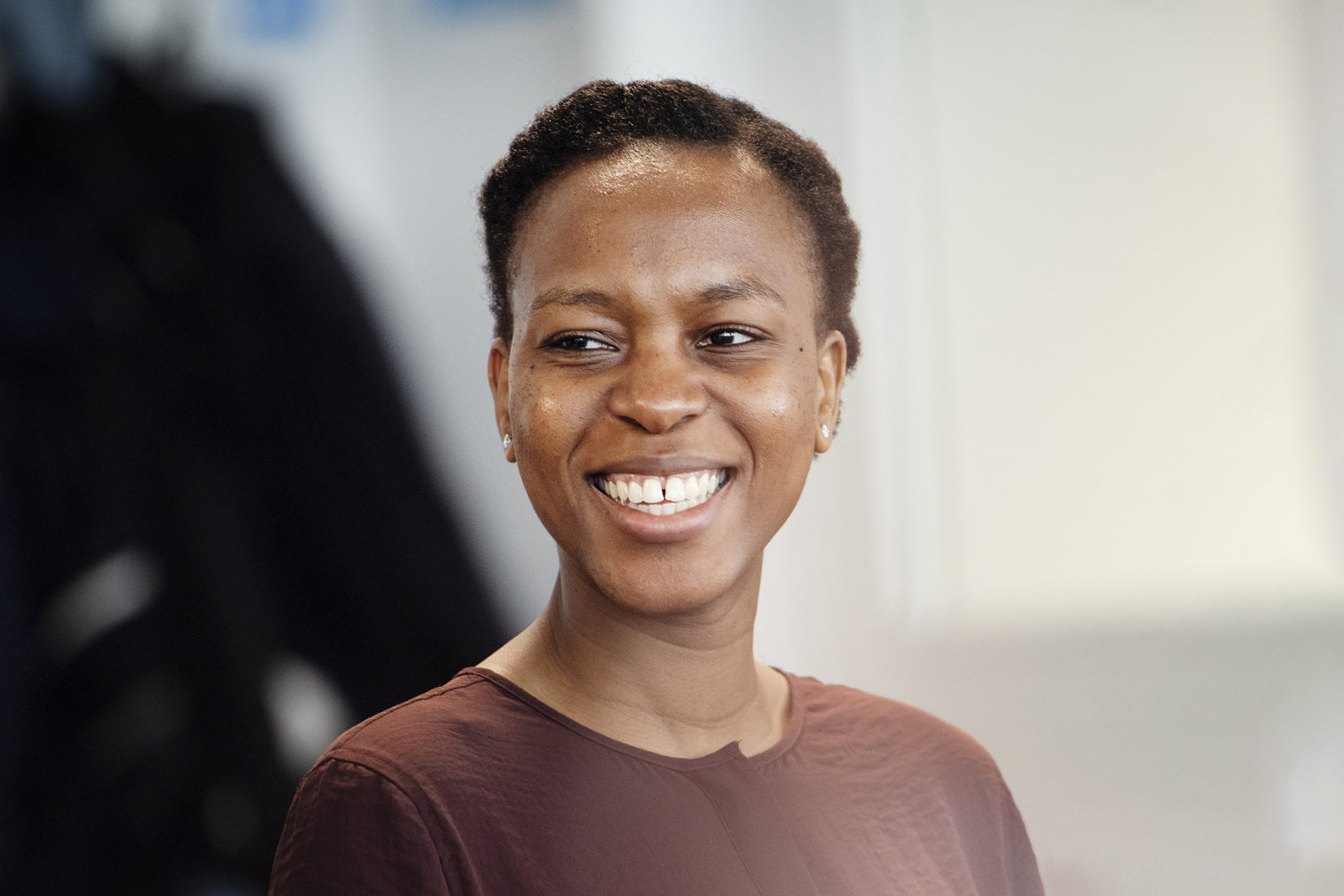What were you doing before coming to Sweden?
I was based in Johannesburg, South Africa where I worked as a Product Owner in the Fin-tech industry. This was a career path that developed after completing a BCom in Information Systems and Management in 2009 and then going straight into an Honors degree in Business Management, while working fulltime.
Why did you want to pursue a master’s degree in Sweden?
As an individual, I have very high ambitions but it’s sometimes difficult to hold on to them. So it was actually my partner who inspired me to aim for further studies when he reminded me that I could achieve more in life. From there, I started thinking about advancing my career as well as personal goals, and through that process I applied for a SI scholarship to study in Sweden.
The application process was thorough and involved a lot of deep self-reflection. This challenged me to really verbalize why I wanted to do this, which I cannot complain about given how competitive the SI scholarship is. While completing the application, I faced a number of hurdles, one of them included only making it to the waiting list with three other people, when the scholarship allocations were announced. Thankfully, in the end I was accepted and this made the experience even more worthwhile.
I chose Entrepreneurship and Innovation Management because I’ve always wanted to help others, specifically female entrepreneurs. I want to empower them with tools and skills that can accelerate their businesses. After noticing that a lot of women especially in developing countries, start businesses out of desperation, I wondered why should they be limited to having businesses that only go as far as taking care of their family? This question stirred a desire to equip myself so that I can give back to those environments, by uplifting others with entrepreneurial skills, which contribute towards developing self-sustaining societies. That’s my inspiration!
What has the scholarship opportunity provided you?
Since Sweden is known for its leading entrepreneurship and innovation culture, I was particularly compelled to study here. Overall, the experience has been rewarding, I’ve enjoyed seeing how far I can be stretched. I’ve also gained an appreciation for how the Swedish mindset empowers people to be themselves. It’s not about proving that you’re the best but rather recognizing that everybody has a unique value to add.
Something else that I learnt from this environment, was seeing how the quality of life improves when basic needs are taken care of, for example internet access, efficient transport systems, well-planned education, healthcare and things like that. The system really provides a platform for people to focus on advancing innovations instead of being consumed to resolve the daily essentials.
Going back to my studies, I’m enrolled in a one year program which was extremely intense. Besides having to adapt to a completely different context, I had to keep up with a fast-paced course that had back-to-back tests, assignments and exams all in six-week cycles, with around three subjects each. It was challenging and yet rewarding because I saw it as a training-ground to develop entrepreneurial skills. This Masters pushed me at every point and taught me the value of being relevant in today’s increasingly competitive environment.
Other positives about the program was that it involved a lot of group work which helped shift the focus away from achieving your own grades and instead, to solving problems by actually applying what you’ve learnt. Being able to talk to the professors on a first name basis was also new to me, which made them more approachable. This also contributed to a meaningful learning experience.
As a way to enrich my time in Sweden, I took on the role of communications manager for the NFGL network at KTH. Through the network I helped organize several events and meet-ups including an inspiring visit to UN City in Copenhagen. Being part of the network was a great way to connect with other scholarship holders and learn about diverse fields of study and backgrounds. Overall it encouraged me to take full advantage of what was available to me, beyond my academic journey.
For example, in April I hosted a panel discussion on the topic of female entrepreneurship and what challenges females have to overcome, compared to their male counterparts. This initiative developed into a Facebook community, serving as one example of how I’ve started my journey to create a platform for female entrepreneurship, which will work to uplift individuals, communities and nations.
What do you think of the future?
Looking at my entire experience of Sweden, I recognize how much the leaders of tomorrow will do things differently. It will be more about having a compassionate heart. Today, solutions don’t always connect with the people or their context. However, by going to the core of real problems, the leaders of tomorrow will have a more meaningful way of leading and creating enhanced societies.
Read about the Swedish Institute Scholarships for South Africa (SISSA).
